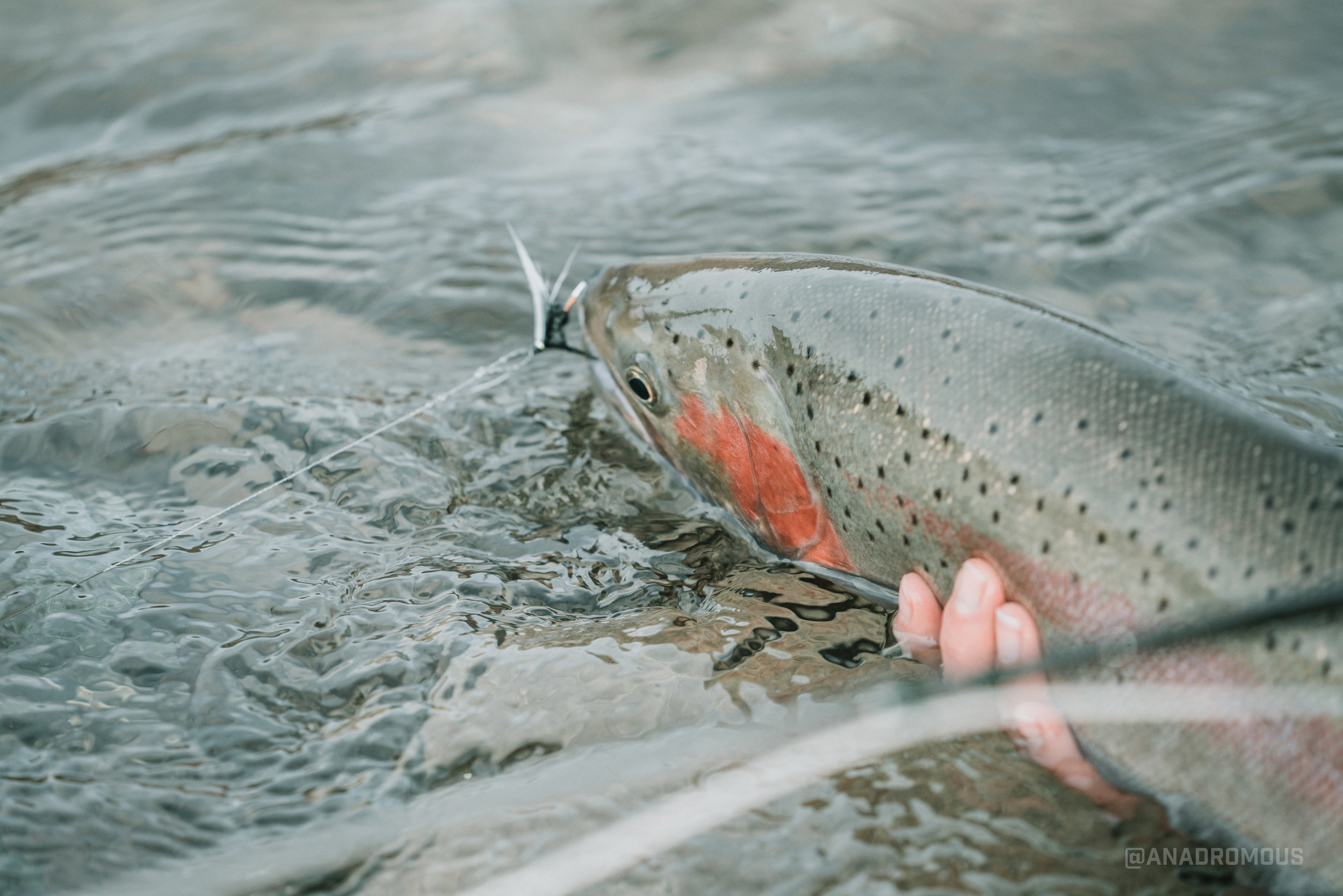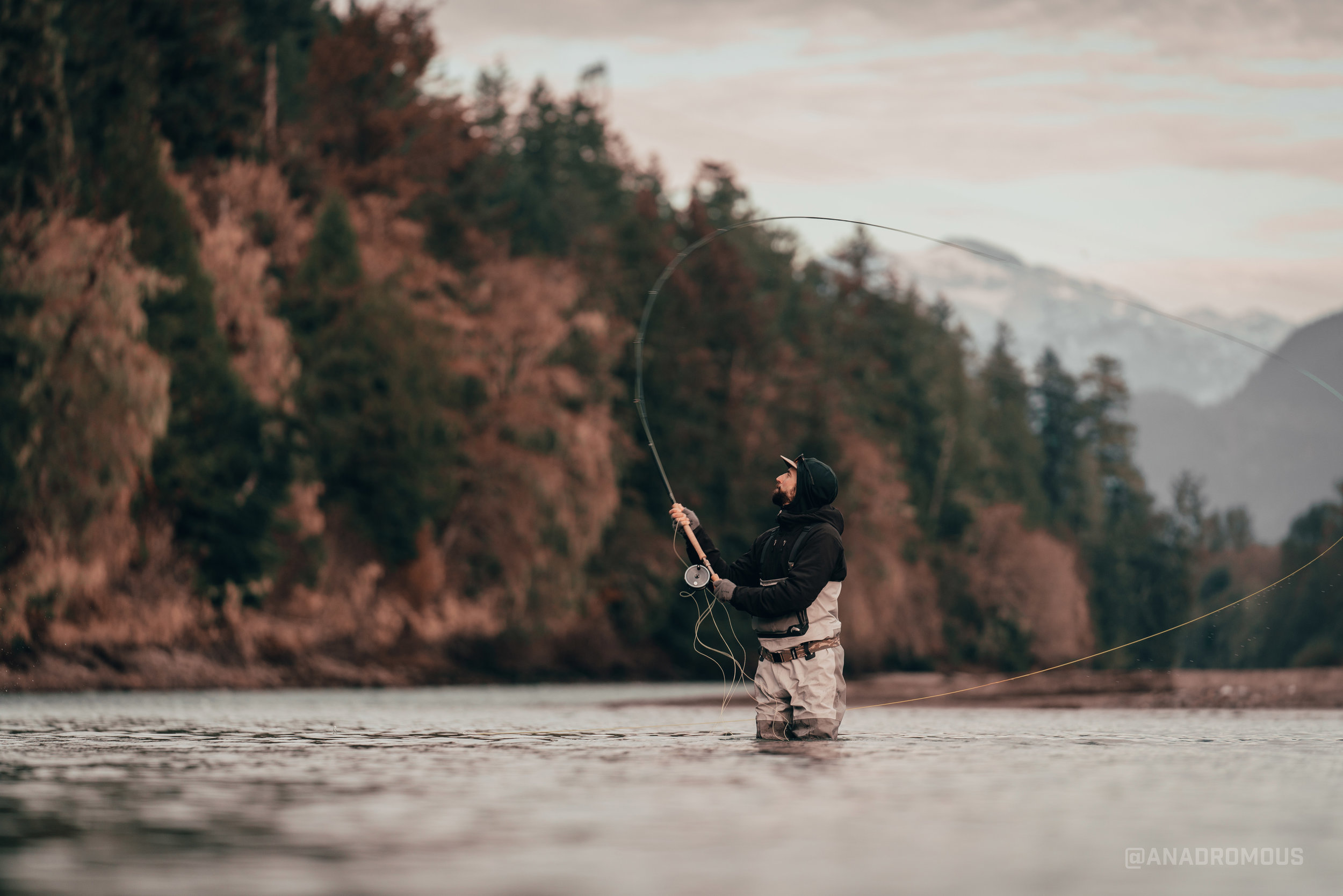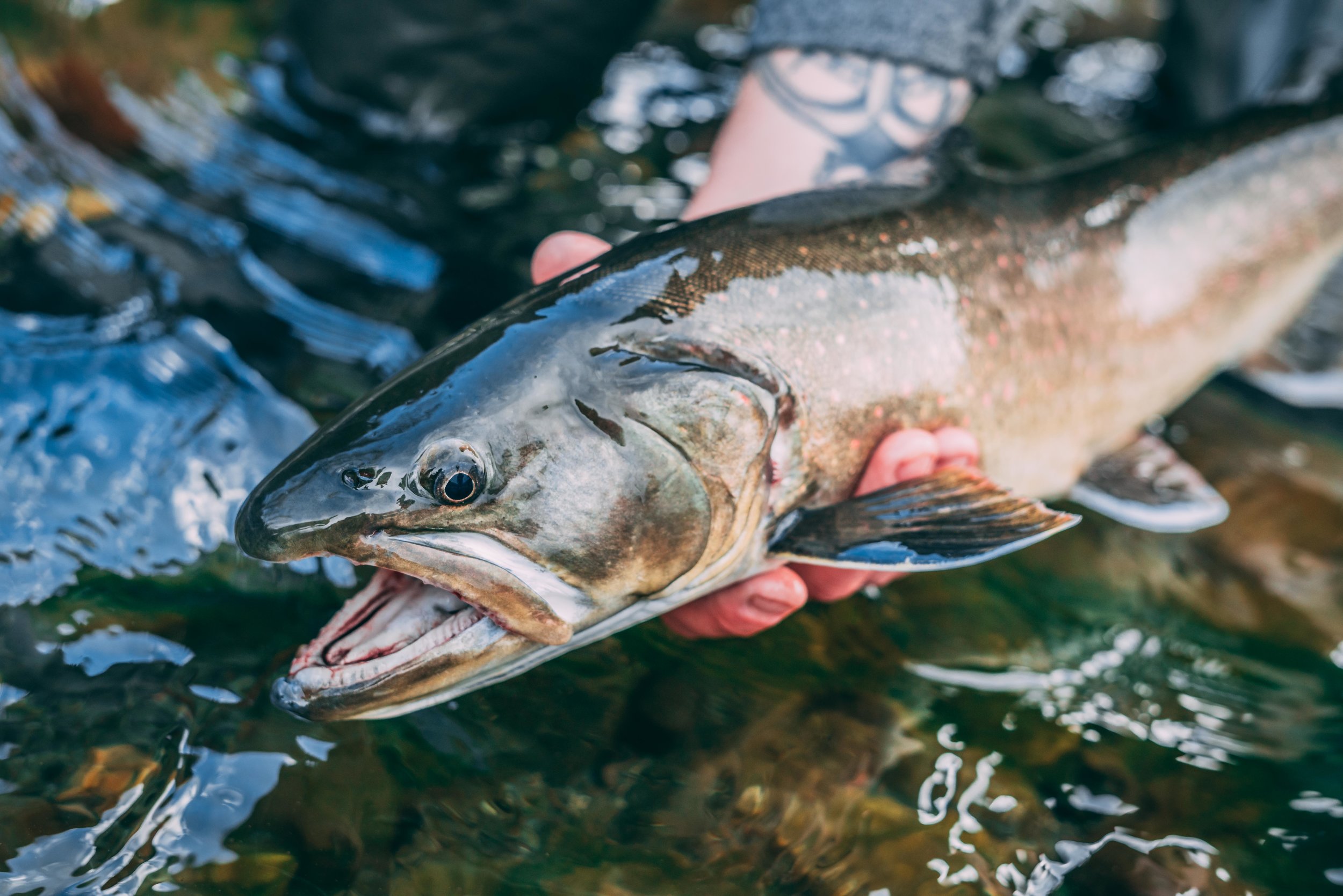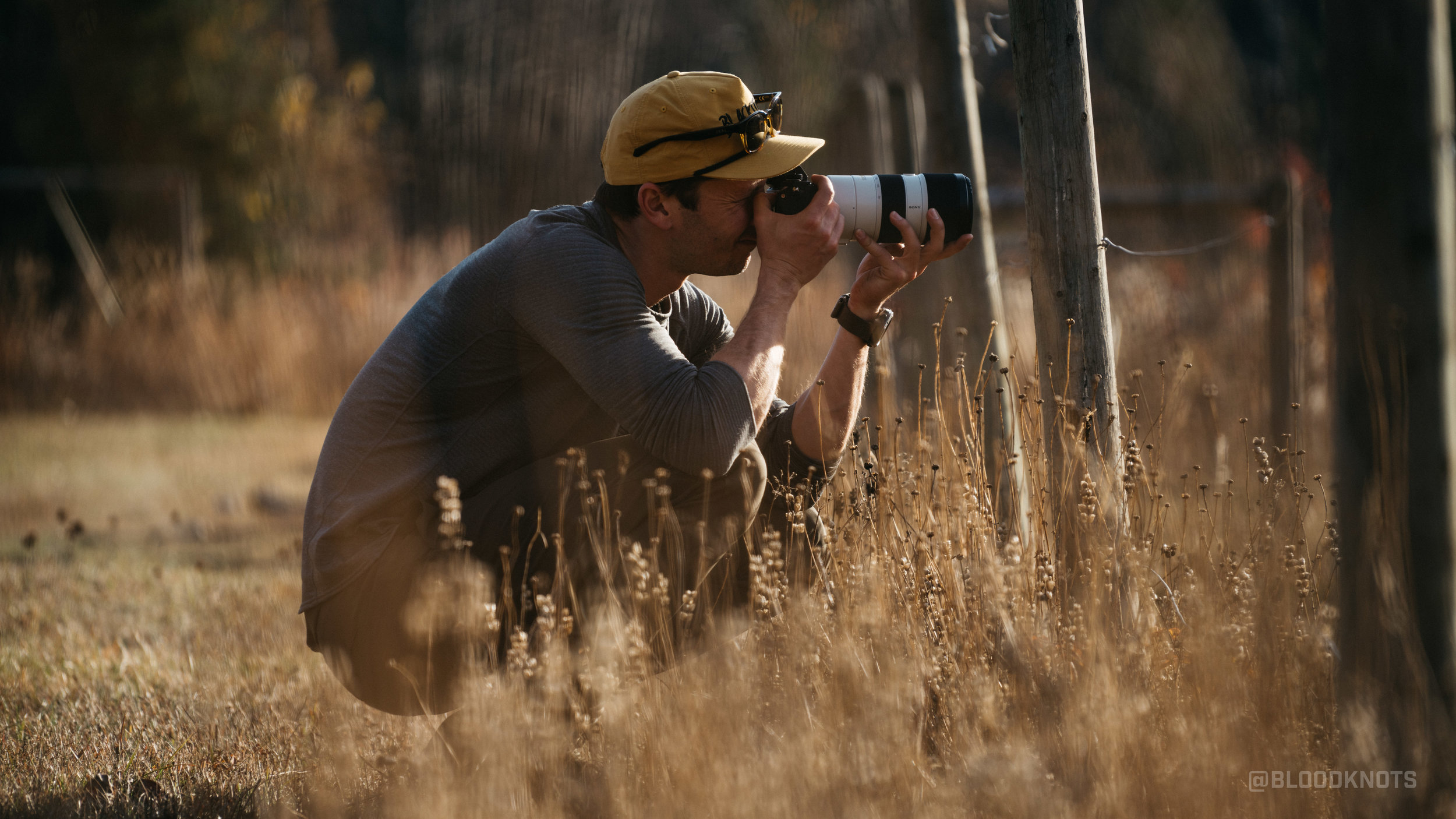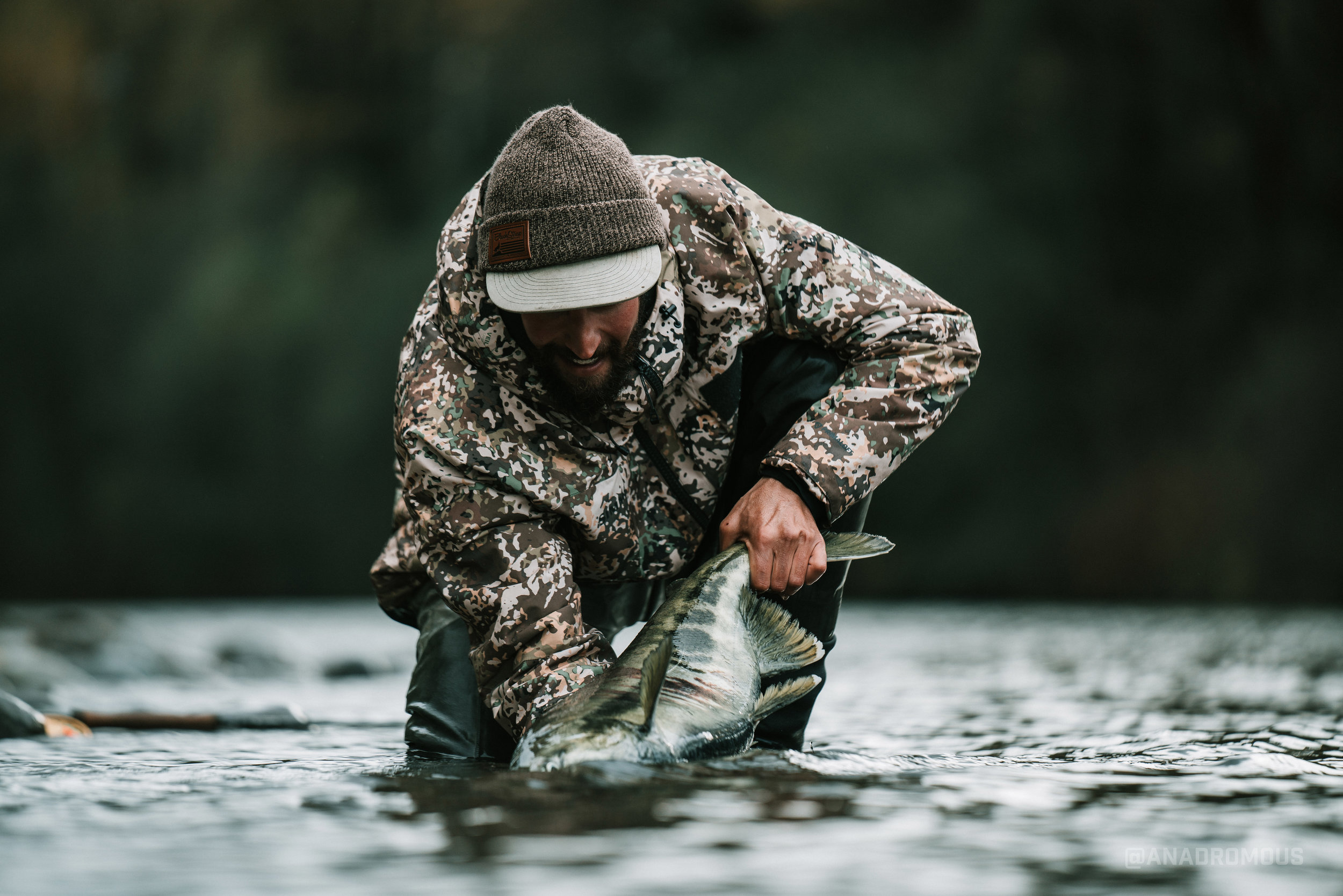Fishing in British Columbia can be a truly inspiring and stunning experience for any angler, regardless of how you prefer to fish. With a wide variety of dynamic, ever-changing rivers, pronounced seasons and wild fish, there are a few things you should 100% know before you make your way to the Great White North.
1. The “Salmon Cycle” affects everything
Unlike many freshwater rivers in the States, the impact that salmon have on the rivers of BC is massive, and this generally dictates a lot of what’s happening in these systems. The five different species of salmon run at different times throughout the year, but generally have some overlap. And, with some exceptions, the stage of their run will have an impact on the behavior of the fish in the area. Are the fish keyed in on salmon eggs, fry, alevins, or flesh matter? Or are they not really eating at all and just looking to spawn? Before you stock up on flies for your trip, learn where the system you’re targeting stands relative to the salmon spawn cycle.
2. Know the local regulations and have your licenses
The province of BC takes the regulation of fishing seriously, as it’s big business and a critical piece of the region's ecosystem. From things like bait bans, to angling from boats, to targeting bull trout, to the handling of fish and more, the regulations in British Columbia can be very different from your local watershed. In some places, non-BC residents aren’t even allowed to fish certain water on weekends. These drainages are referred to as “Classified Water,” and you should familiarize yourself with them, especially if you’re going to be steelheading. In some places, you may need up to three different licenses in order to fish (non-tidal, steelhead conservation, and classified water), some even being river-specific per day. For example, you can see this detailed PDF on Skeena regs available online via the BC Ministry of Forests, Lands, and Natural Resource Operations website (along with others here). These licenses can get pricey, but it’s a small price to pay for proper protections and funding to keep these special waters in good shape.
You can purchase your BC fishing licenses online here: http://www.fishing.gov.bc.ca/
3. Carry bear spray on your belt
In BC it’s illegal to shoot bears, and gun laws are very strict. The best solution (besides common sense) to protect yourself from a close encounter with a furry giant is bear spray. Bear spray is a highly condensed aerosol bear deterrent, whose active ingredients are capsaicin and related capsaicinoids (i.e. the spicy stuff in peppers). Bear spray is a very effective deterrent when used properly. In a 2008 review of bear attacks in Alaska from 1985–2006, Smith et al. found that bear spray stopped a bear's "undesirable behavior" in 92% of cases. Further, 98% of persons using bear spray in close-range encounters escaped uninjured. It’s illegal to fly with, so I would recommend picking some up at the local MEC, along with a belt holster for quick access.
Pro tip: during Fall (salmon season), the smaller canisters ideal for belt-wear tend to sell out, so call ahead and have some ready for pickup when you arrive. Or just trip your buddy when you’re running from a bear —both work fine.
4. Always have a raincoat and a headlamp
Embrace the weather and be prepared. The weather in British Columbia changes quickly and can catch you off-guard if you’re not ready. Even if the forecast calls for sunshine, throw that raincoat in your pack. Due to the variability of the terrain, weather systems can change fast depending on where you are. You don’t want a surprise rainfall cutting your fishing day unnecessarily short. And no matter how big you think your kahunas are, you’re not going to “brave the cold” when you wind up soaked in low temperatures. And be sure to pack that headlamp (with batteries), because, well, you just never know.
5. Check the local river flows
With rapidly changing weather and the fact there are very different, distinct seasonal changes in the province of BC, the river flows can vary widely, even day-to-day, depending on the rain. Some of these rivers can “blow out” easily, and alternatively, some need color in the water to fish well. Most BC anglers know that the “low-and-clear” day can be as beautiful as it is frustrating. I personally use RiverApp to check flows in the province, as they support data reporting on a good amount of international water systems. If they would just add historical average comparisons to the data reporting (ahem)…
6. Carry a good knife
When that radiator hose busts in the middle of nowhere and you need to do some open-hood auto surgery, you’re going to be glad that you’re carrying something reliable (true story). Remember, while they’re very kind, there are far fewer people in BC than in the States. That means you’re often going to have to handle situations on your own, especially when you’re way out in the sticks chasing that fish of your dreams. I personally always have a Gerber Propel AO on me, and my lady packs a Gerber Vertebrae fixed blade when we’re out on the river. I highly recommend both for reliable, affordable quick-deploy blades when you’re outside of cell service.
7. Respect the local communities
The land and treatment of First Nations communities in BC can be a bit of a divisive topic in Canada. To put it simply: be very conscious and respectful of these communities and their land. There is a lot of really good water running through them, but respecting (and abiding by regulations) is more important than catching any fish. Remember that you are a visitor there, so act accordingly.
8. Dial in your camera setup
If you’ve ever been tempted to spring for that killer 70-200mm lens, this trip is the perfect time. There’s no question, British Columbia is one of the most photogenic places in the world. And if you’re reading this, that means you’re thinking about going (or maybe going again). Plus, when you land that beastly bull or your first wild steelhead, you may want more than an iPhone photo. Otherwise, the wildlife in BC alone is reason enough to scratch that photo itch. Writing is awesome, but a (in-focus) picture is worth a thousand words. To protect my camera gear while on the river, I lean heavily on the YETI Panga 28 submersible backpack—it’s totally bomber and relatively easy to get in and out of when you want to grab something quick.
9. Plan your floats for safety and timing
If you’re going to be employing any kind of boat to access more water (highly recommended), you’ll want to be sure you know what you’re getting yourself into, and how long the float should take you. Few things are worse than having to finish your drift by rowing down some sketchy rapids in the dark (ask @bloodknots - he’ll tell you). Check in with a local fly shop or two, or even your shuttle driver (again recommended) about the timing, conditions and possible obstacles on the section of the river you’re floating. Often times these are well-known or even marked, but if you don’t ask, you might not know. And one of the quickest ways to ruin your trip will be to capsize while you’re wearing waders (see: things that don’t float). Also, bring—and wear—that life jacket. It’s the law, but it’s also what is going to keep that eddy from rolling you around like you’re in a washing machine (dark, I know).
Pro tip: shorter drifts = (more fishing time + less rowing time).
10. Lighter note: Tim Hortons is your friend
I hope you’re ready for many 5am mornings. And not much is open in BC before the sun comes up. Timmy’s is always open, they’re pretty much everywhere, and are a quick grab when you’re chomping to get your boots in that perfect run before anyone else does. My go-to order: a “double-double” (coffee with two creams and two sugars) and a breakfast sandwich (+ hashbrown). I’m not a big fast food guy, to say the least, but few other things make me okay with the idea of waking up that early...
All this said, if you prepare properly, BC will rock your world and inspire you as an angler, outdoors-person and conservationist. This special place should be celebrated and enjoyed as the incredible gem that it is, and also carefully protected for future generations to come.
And before I go, a few other small tips that didn’t make the big list:
Be respectful (this isn't Colorado) - ha!
Be kind to fish for goodness sake.
Pick up your trash, you filthy animal.
Dial in your spey cast (by far the most fun way to get skunked).
Check out Pacific Angler (fly and gear) and Michael & Young (fly only) if you’re looking for good shops in Vancouver, and Oscar’s if you find yourself in the Skeena Valley.
Look out for my BC Steelhead film project with @bloodknots releasing Spring 2019.
Lastly, be sure to follow along with my adventures on Instagram at @anadromous, and leave me a comment or shoot me a note with anything I’ve missed. I’m always game for a good convo about the outdoors.
Cheers, and see you on the river!



